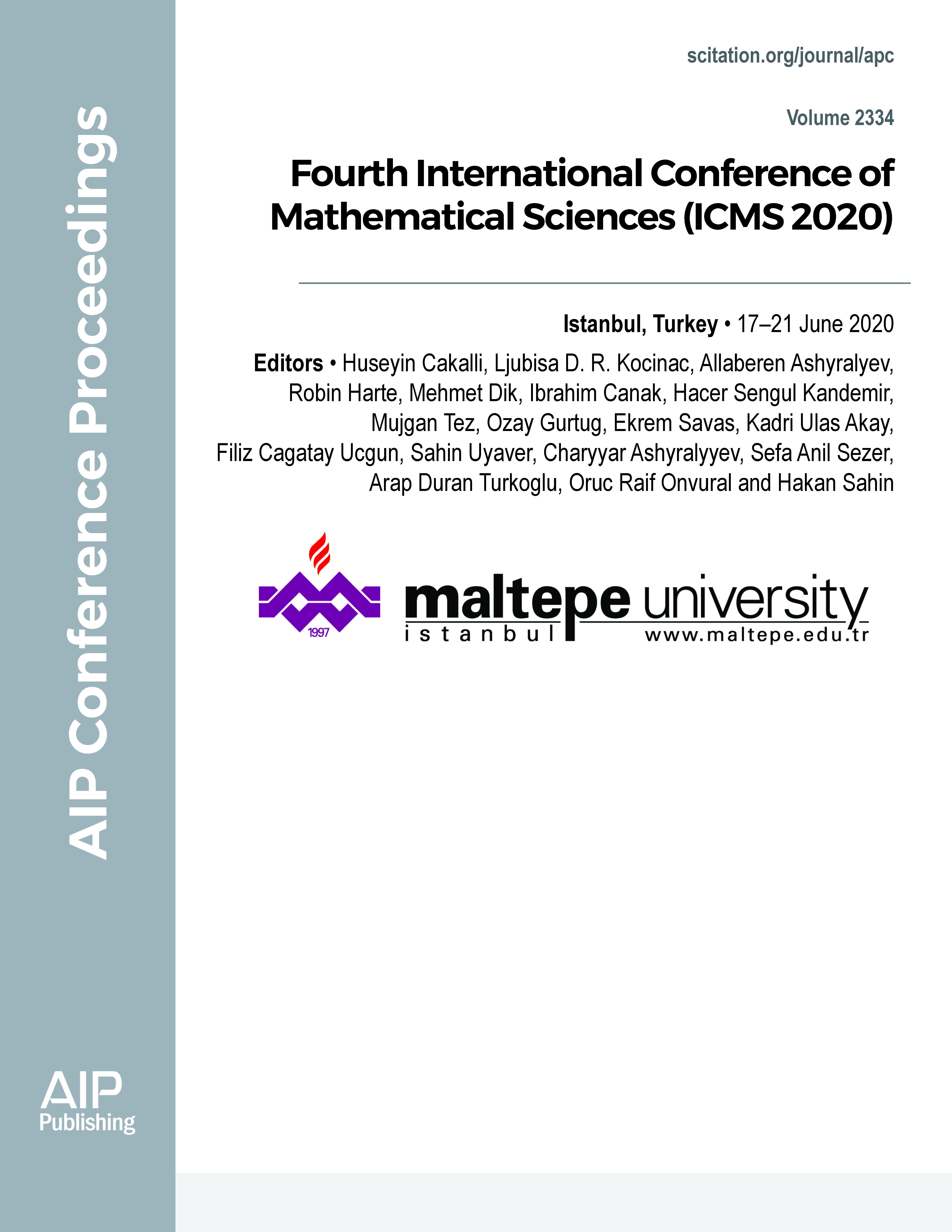Volume 2334: Fourth International Conference of Mathematical Sciences (ICMS 2020)
Volume 2334: Fourth International Conference of Mathematical Sciences (ICMS 2020)
By Huseyin Cakalli, Ljubisa D. R. Kocinac, Allaberen Ashyralyev, Robin Harte, Mehmet Dik, Ibrahim Canak, Hacer Sengul Kandemir, Mujgan Tez, Ozay Gurtug, Ekrem Savas, Kadri Ulas Akay, Filiz Cagatay Ucgun, Sahin Uyaver, Charyyar Ashyralyyev, Sefa Anil Sezer, Arap Duran Turkoglu, Oruc Raif Onvural and Hakan Sahin
Volume 2334 is the proceedings of Fourth International Conference of Mathematical Sciences (ICMS 2020) (17–21 June 2020, Istanbul, Turkey)
Title information
Summary of this volume: The Fourth International Conference of Mathematical Sciences (ICMS 2020) was a continuation of conferences held in 2009, 2018, and 2019, and will be followed by the Fifth International Conference of Mathematical Sciences (ICMS 2021), which will be held on 23-27 June 2021 at Maltepe University, Istanbul, Turkey. The conference mainly focuses on mathematics in parallel sessions; topology, analysis and functional analysis, sequences series summability, fixed point theory, numerical functional analysis, computer science and technology, mathematical methods in science and engineering, and applied statistics. In recent years new technologies have developed rapidly, and for this development many branches of science have worked together, including significant contributions by mathematics. Topics such as logic, data mining, artificial intelligence, quantum physics, and machine learning have come to the forefront. In this context, the concept of a neutrosophic set is a solution to the problems in various fields of real life. A large number of mathematical-physics problems are modeled using partial derivative equations. By models, we mean a set of equations (or inequations) that together with boundary and initial conditions, when the phenomenon is of evolution type, allows us to describe the considered physical problem. In the last century and thanks to the emergence of functional analysis, ideas regarding systems theory on finite dimension could be extended to infinite dimension. Consequently, major advances were made concerning the theory of differential equations. The study of the partial differential equations which are related to evolutionary problems have several interesting aspects for scientists, who investigated the behavior of their solutions. Recently, thanks to the efforts of many mathematicians, great progress has been made in obtaining the stabilization, dissipation and controllability of evolutionary equations. In this direction, techniques were created to determine accurate decay rates (particularly exponential and algebraic) for some models, subject to either boundary or internal dissipation. Also, it became possible to control a system by taking it from an initial state to a previously known final state.
These proceedings will be of interest to: Ph.D. students, lecturers with titles, Ph.D. holders, associate professors, and professors.
For further information about this volume: Please view the table of contents available on AIP Publishing's Scitation platform: Volume 2334 table of contents.


